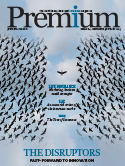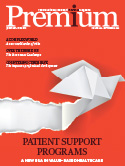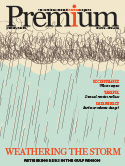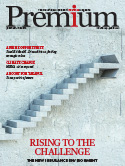Financial Resilience for All

On the occasion of International Women’s Day, which celebrates the role of women in business, families, and society, Gaenor Jones reflects on the relevant issues raised in the Insuring Women’s Futures report.
The Insuring Women’s Futures Report unveiled last month by the Chartered Insurance Institute in the UK was the culmination of a thorough three-year initiative that involved extensive research, policy development and market collaboration. Through this report, the aim was to raise awareness of the changes in society impacting financial resilience for women, and part of it involves making the insurance profession more inclusive, to help people build financial, physical and mental well-being.
While some of the issues focused on in the report and its manifesto were UK-centric, particularly in relation to women’s pension eligibility and provision, it raised some important considerations for expatriate women living in the UAE who are also faced with securing their financial future. Indeed, some of the areas identified in the report are already a focus point with the support of regulatory partners, including the UAE Insurance Authority.
The study supports the view that if we are to create gender equality and reduce the inequitable risks that women face, we need to view the challenge holistically. We need to start early, with girls as well as boys, and continue with ongoing commitments to change. We need to address attitudes and behaviour in society at large, in the workplace, in education and in the home. The CII Middle East, recognising the importance of educating young people about the benefits of financial awareness has set about empowering youth by implementing a range of initiatives. We are working in collaboration with the UAE Insurance Authority to raise awareness for the need for insurance and the consequences of not having the correct cover in place to the youth of the UAE; this initiative will be rolled out later this year. While the focus is not solely on girls per se, the CII report infers the importance of gender parity and neutrality.
The report and within it, a comprehensive manifesto, draws attention to life changing scenarios for women or “Moments that Matter” which can influence their future financial security. For instance, it clearly sets out the case for encouraging workplace flexibility. Here in the UAE, recently we welcomed the recent announcement at the recent Global Women’s Forum, by Mona Al Marri, vice president of the UAE Gender Balance Council, concerning the extension of maternity rights to women, and the introduction of part time work. These are policies due to be introduced shortly and the move will encourage more women to seek employment and will make a valuable impact in decreasing their financial vulnerability.
The IWF’s report also highlights the benefits to women who, through life changes, ie, their children leaving home, embark on a new educational path to boost their qualifications and increase their employment potential and subsequent financial wellbeing.
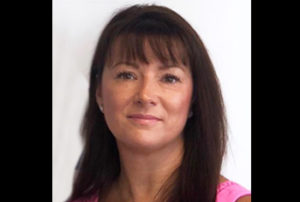
Gaenor Jones, regional director, CII MEA
Other life changing scenarios are highlighted, all of which are applicable to women’s lives in the UAE, including the Impact of marital breakdown and divorce. The reality is that divorce rates in the UAE now rival those in the West, with one in four UAE marriages ending in separation or divorce, and the financial implications for women can be complex and detrimental to long-term financial security.
As the UAE government continues to introduce progressive legislation, which brings about societal changes, the impact on expat women’s financial futures will continue. The introduction of the five-year multiple entry visa will see a marked increase in expats extending their residency beyond their working life, the appeal having been boosted by the drop in rents and house prices. Consequently, this will bring about a wealth of considerations regarding healthcare and pension provision.
The relaxation of visa rules may also see women having to care for an elderly relative here in the UAE, much the same as they would if they lived in the UK. This may curtail their employment opportunities and have a negative effect on their finances and savings.
International Women’s Day provides a great opportunity to bring to the fore a wealth of considerations regarding the financial security of women wherever they live and whatever their employment circumstances. Their need for consistent professional guidance that addresses their personal circumstances and their role within a changing society remains a constant.
We will continue to encourage women to seek advice from a qualified insurance adviser who is a member of a professional body like ourselves. It is through extensive studies like the Insuring Women’s Futures report that we can raise these pertinent crucial issues, and we remain committed to working closely with the insurance and financial planning professions to address them.









